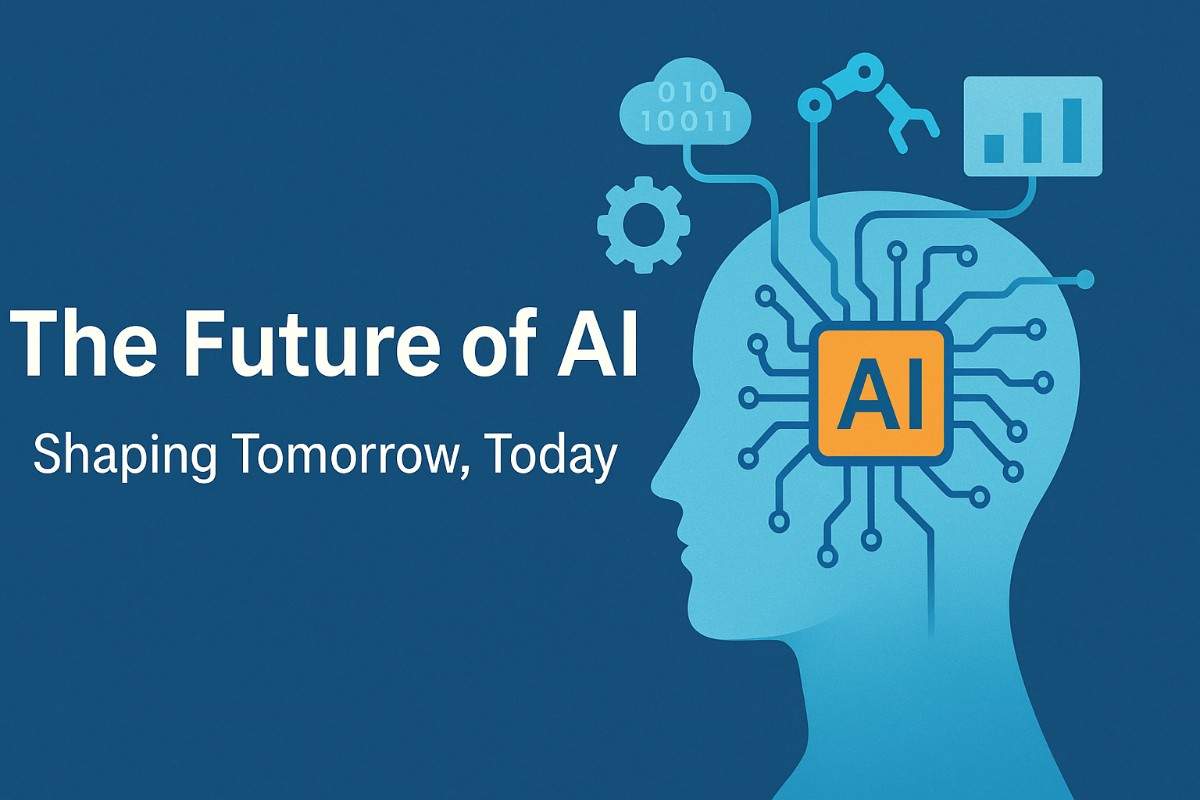The Future of AI: Shaping Tomorrow, Today
Artificial Intelligence (AI) is no longer a futuristic concept—it’s a present-day reality that is rapidly transforming the way we live, work, and interact. From voice assistants like Siri and Alexa to autonomous vehicles and intelligent medical diagnostics, AI is already embedded in our everyday lives. But this is just the beginning.
What Is AI?
AI refers to the simulation of human intelligence in machines that are programmed to think, learn, and solve problems. It includes technologies like machine learning, natural language processing, computer vision, and robotics, all working together to create smarter systems.
The Current Landscape of AI
Today, AI is used across a wide range of industries:
-
Healthcare: For faster diagnosis, personalized medicine, and robotic surgery.
-
Finance: Fraud detection, algorithmic trading, and customer support.
-
Retail: Recommendation engines, inventory management, and AI chatbots.
-
Manufacturing: Predictive maintenance, automation, and quality control.
-
Education: Smart tutoring systems, grading automation, and personalized learning.
But where is all this heading? What does the future hold?
Top Predictions for the Future of AI
1. Hyper-Personalization in Every Sector
AI will be able to analyze your behavior, preferences, and habits to offer hyper-personalized services—from health care to education to entertainment.
2. Human-AI Collaboration Will Replace Automation Fears
Rather than replacing jobs, future AI will augment human capabilities. Think of it as a smart assistant that empowers humans to work more efficiently, creatively, and safely.
3. Autonomous Everything
From self-driving cars to smart homes and delivery drones, AI will be at the core of autonomous systems that enhance convenience and efficiency.
4. AI in Climate and Sustainability
AI will play a pivotal role in tackling climate change—optimizing energy consumption, predicting natural disasters, and enabling smart agriculture.
5. Emotional and Ethical AI
We’re moving toward AI that understands human emotions and can interact empathetically. Simultaneously, ethical considerations will shape how we design and use AI, ensuring fairness, transparency, and accountability.
Challenges Ahead
While the future looks promising, AI also brings challenges:
-
Data Privacy: AI systems rely on massive amounts of data—raising questions around consent and security.
-
Bias and Fairness: AI can inherit human biases from the data it’s trained on.
-
Job Displacement: While AI creates new roles, certain jobs may become obsolete.
-
Regulation: Governments worldwide will need to create balanced policies to regulate AI development and usage.
Conclusion: A Future Built with AI and Humanity
The future of AI is bright, dynamic, and full of potential. But to make it truly transformative, we must ensure it’s developed ethically, responsibly, and inclusively. AI is not just about machines getting smarter—it’s about building a better future for humanity, where technology amplifies human potential and bridges gaps, not widens them.
As we look forward, one thing is clear: AI won’t just be part of our future—it is the future.




